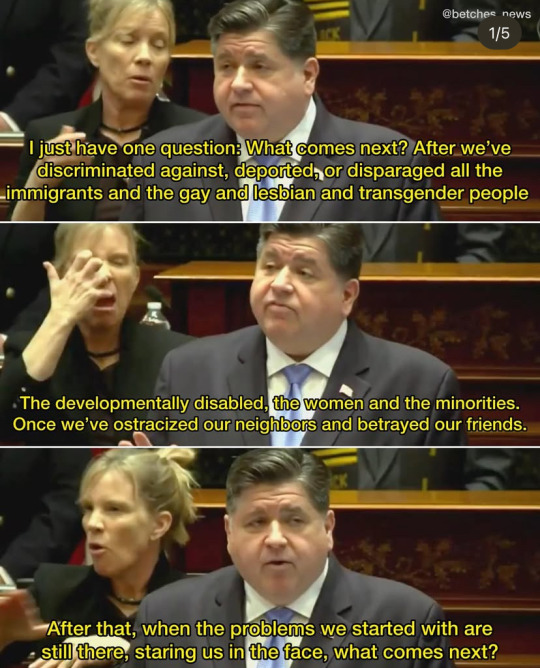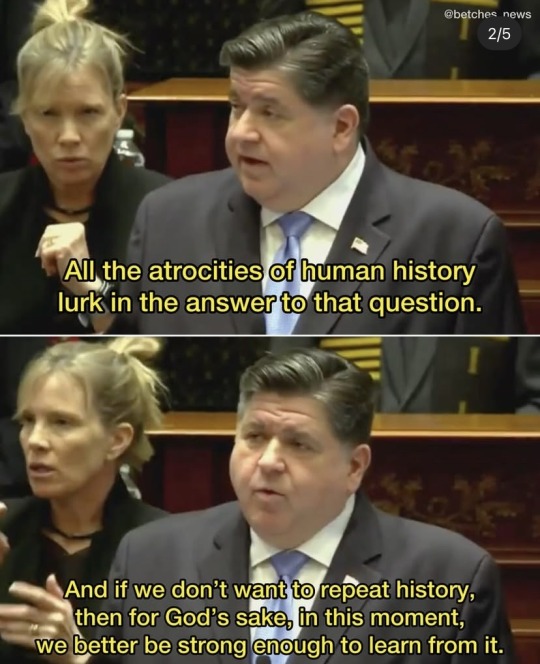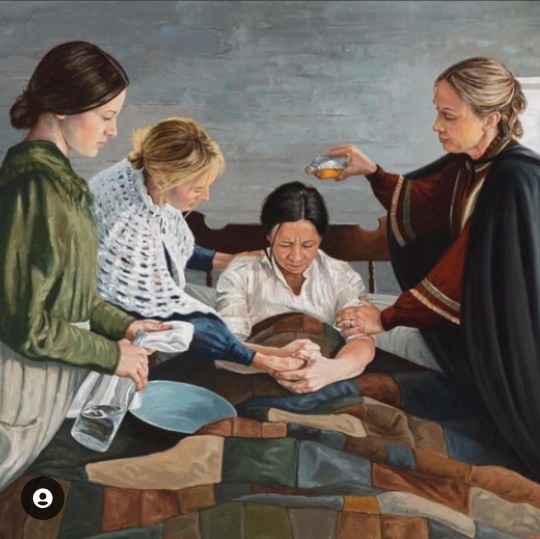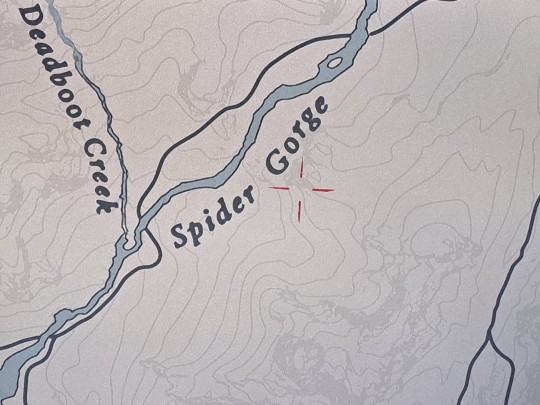formerly my-fandom-needs-me | mormon shitposting | five nights at freddys brainrot | bisexual | 24 | they/them | Leftist | | 🇵🇸 FREE PALESTINE 🍉 | picrew by wervty
Don't wanna be here? Send us removal request.
Text
Fun facts about the art book:
Some of the worksheets and print outs you see in the book are things from Sunday school that my mom saved in her study Bible from her time in the Mormon church in the 1990s, before I was even a thought
The book used was a copy of Divergent by Veronica Roth. I considered using a copy of Twilight (Stephenie Meyer) instead, but couldn’t source a second hand soft-back copy in my area
I made this book while listening to almost exclusively Preacher’s Daughter (Ethel Cain), as well as hymns and Christmas music
The Catholic imagery you see in the book comes from Mormonism’s history of being compared and conflated with Catholicism in history; especially in Victorian era Britain. It also reflects my interest and deep love for both Mormonism and Catholicism.
A lot of the things in here reflect my own personal history, and the poem written by Callum (my partner) is possibly the biggest example of that
My blood being in the book was originally an accident, but I sealed it up with mod podge and called it a day
Also, I made sure every page was in order!
15 notes
·
View notes
Text
Wilford Woodruff, who would eventually become President of the Church of Jesus Christ of Latter-day Saints had a vision of the Founding Fathers of the United States asking him to do their temple work. "I will here say, before closing, that two weeks before I left St. George the spirits of the dead gathered around me, wanting to know why we did not redeem them. Said they, ‘You have had the use of the Endowment House for a number of years, and yet nothing has ever been done for us. We laid the foundation of the government you now enjoy, and we never apostatized from it, but we remained true to it and were faithful to God. These were the signers of the Declaration of Independence, and they waited on me for two days and two nights. I thought it very singular that notwithstanding so much work had been done, and yet nothing had been done for them. The thought never entered my heart from the fact, I suppose, that heretofore our minds were reaching after our more immediate friends and relatives. I straightway went into the baptismal font and called upon Brother McAllister to baptize me for the signers of the Declaration of Independence and fifty other eminent men, making 100 in all, including John Wesley, Columbus, and others. I then baptized him for every president of the United States except three, and when their cause is just, somebody will do the work for them."
The three were: Martin Van Buren, who Joseph Smith petitioned when the Saints were being persecuted in Missouri, and who replied, "Your cause is just, but I can do nothing for you." Hence Woodruff's comment about "when their cause is just..." James Buchanan And Ulysses S Grant, who was still alive
47 notes
·
View notes
Text
“Unveiling” aka “weird Mormon art book”
PART 1/3 part two part three
TW for possibly distressing text
Note: you will see the name “Othello” in this book- that’s because that’s also my name! :) I go by many names, and I chose Othello for school. I made this book as an assignment in college.










22 notes
·
View notes
Text
“Unveiling” aka “weird Mormon art book”
PART 2/3 part one part three
TW for possibly distressing text
Note: you will see the name “Othello” in this book- that’s because that’s also my name! :) I go by many names, and I chose Othello for school. I made this book as an assignment in college.










28 notes
·
View notes
Text
“Unveiling” aka “weird Mormon art book”
PART 3/3 part one part two
TW for possibly distressing text
Note: you will see the name “Othello” in this book- that’s because that’s also my name! :) I go by many names, and I chose Othello for school. I made this book as an assignment in college.







24 notes
·
View notes
Text


334/366 the art inspector™️ evaluating my work
149 notes
·
View notes
Text
This isn't about whether you think it's likely that you'll die in this body of water; it's about which body of water you would give the right to take you.
For example, for me it's Lake Michigan.
Tag discussion encouraged of course
6K notes
·
View notes
Text


There are people – some in my own Party – who think that if you just give Donald Trump everything he wants, he’ll make an exception and spare you some of the harm. I’ll ignore the moral abdication of that position for just a second to say — almost none of those people have the experience with this President that I do. I once swallowed my pride to offer him what he values most — public praise on the Sunday news shows — in return for ventilators and N95 masks during the worst of the pandemic. We made a deal. And it turns out his promises were as broken as the BIPAP machines he sent us instead of ventilators. Going along to get along does not work – just ask the Trump-fearing red state Governors who are dealing with the same cuts that we are. I won’t be fooled twice.
I’ve been reflecting, these past four weeks, on two important parts of my life: my work helping to build the Illinois Holocaust Museum and the two times I’ve had the privilege of reciting the oath of office for Illinois Governor.
As some of you know, Skokie, Illinois once had one of the largest populations of Holocaust survivors anywhere in the world. In 1978, Nazis decided they wanted to march there.
The leaders of that march knew that the images of Swastika clad young men goose stepping down a peaceful suburban street would terrorize the local Jewish population – so many of whom had never recovered from their time in German concentration camps.
The prospect of that march sparked a legal fight that went all the way to the Supreme Court. It was a Jewish lawyer from the ACLU who argued the case for the Nazis – contending that even the most hateful of speech was protected under the first amendment.
As an American and a Jew, I find it difficult to resolve my feelings around that Supreme Court case – but I am grateful that the prospect of Nazis marching in their streets spurred the survivors and other Skokie residents to act. They joined together to form the Holocaust Memorial Foundation and built the first Illinois Holocaust Museum in a storefront in 1981 – a small but important forerunner to the one I helped build thirty years later.
I do not invoke the specter of Nazis lightly. But I know the history intimately — and have spent more time than probably anyone in this room with people who survived the Holocaust. Here’s what I’ve learned – the root that tears apart your house’s foundation begins as a seed – a seed of distrust and hate and blame.
The seed that grew into a dictatorship in Europe a lifetime ago didn’t arrive overnight. It started with everyday Germans mad about inflation and looking for someone to blame.
I’m watching with a foreboding dread what is happening in our country right now. A president who watches a plane go down in the Potomac – and suggests — without facts or findings — that a diversity hire is responsible for the crash. Or the Missouri Attorney General who just sued Starbucks – arguing that consumers pay higher prices for their coffee because the baristas are too “female” and “nonwhite.” The authoritarian playbook is laid bare here: They point to a group of people who don’t look like you and tell you to blame them for your problems.
I just have one question: What comes next? After we’ve discriminated against, deported or disparaged all the immigrants and the gay and lesbian and transgender people, the developmentally disabled, the women and the minorities – once we’ve ostracized our neighbors and betrayed our friends – After that, when the problems we started with are still there staring us in the face – what comes next.
All the atrocities of human history lurk in the answer to that question. And if we don’t want to repeat history – then for God’s sake in this moment we better be strong enough to learn from it.
I swore the following oath on Abraham Lincoln’s Bible: “I do solemnly swear that I will support the constitution of the United States, and the constitution of the state of Illinois, and that I will faithfully discharge the duties of the office of Governor .... according to the best of my ability.
My oath is to the Constitution of our state and of our country. We don’t have kings in America – and I don’t intend to bend the knee to one. I am not speaking up in service to my ambitions — but in deference to my obligations.
If you think I’m overreacting and sounding the alarm too soon, consider this:
It took the Nazis one month, three weeks, two days, eight hours and 40 minutes to dismantle a constitutional republic. All I’m saying is when the five-alarm fire starts to burn, every good person better be ready to man a post with a bucket of water if you want to stop it from raging out of control.
Those Illinois Nazis did end up holding their march in 1978 – just not in Skokie. After all the blowback from the case, they decided to march in Chicago instead. Only twenty of them showed up. But 2000 people came to counter protest. The Chicago Tribune reported that day that the “rally sputtered to an unspectacular end after ten minutes.” It was Illinoisans who smothered those embers before they could burn into a flame.
Tyranny requires your fear and your silence and your compliance. Democracy requires your courage. So gather your justice and humanity, Illinois, and do not let the “tragic spirit of despair” overcome us when our country needs us the most.
Sources:
• NBC Chicago & J.B. Pritzker, Democratic governor of Illinois, State of the State address 2025: Watch speech here | Full text
• Betches News on Instagram (screencaps)
67K notes
·
View notes
Text

Painting is "Relief Society Healing," by Anthony Sweat
"These women had strong spiritual gifts and taught their daughters and granddaughters about accessing the powers of Heaven.
In blessing meetings as early as Kirtland, women prophesied, spoke in tongues, and gave blessings of healing. In current Church teaching this would be considered improper, but Joseph Smith's response to questions at the time was unconcerned: "If the sisters should have faith to heal the sick," he said, "let all hold their tongues." Fair enough, Brother Joseph!
The rules about exercising spiritual gifts got more complicated under Brigham Young, with a variety of conflicting messages from the brethren, but the sisters continued their blessing meetings through the difficult days of crossing the plains, the early Relief Society in Utah, and well into the twentieth century.
Parents often gave joint blessings to their children. Sisters came up with rituals of washing and anointing each other during sickness, before surgery, and in preparation for childbirth. Oh my goodness, of course there should be a blessing for childbirth. That is so beautiful. And this wasn't something sneaky that people did in the privacy of their own homes-blessing rituals were propagated through the Relief Society itself, with some sisters even called and set apart to perform them.
I find one surviving record of a blessing before childbirth. There's no way to tell whether it's someone's transcript of one blessing or a script used to give many blessings, but it is so full of empathetic specificity from one mother to another. The pregnant mother is blessed that her hips "might relax and give way for the birth...that the child shall present right and...the afterbirth shall come at its proper time." Her breasts are blessed that her "milk may come freely and [she] need not be afflicted with sore nipples as many are, [her] heart that it might be comforted."
The night before Jane was born, I asked Nate to give me a blessing. I treasure that memory. But it's not like he thought to mention the afterbirth or the difficulty of breastfeeding."
— Mikayla Orton Thatcher, Beehive Girl (available now on Amazon)
From BBC press on instagram
126 notes
·
View notes
Text
Sometimes I'm a "Iscariot by Tosca Lee" Judas truther, and sometimes I'm a "The Last Days of Judas Iscariot by Stephen Adly Guirgis" Judas truther
But I'm never not a "The Ballad of the Judas Tree by Ruth Etchell" Judas truther
253 notes
·
View notes
Text
This Black History Month, reflect for a moment on the fact that George Washington Carver, famously "the inventor of peanut butter and more than 100 industrial uses for peanuts" wasn't, like, Doc Brown fucking around in his garage because he really liked peanuts but was specifically trying to introduce larger use of a nitrogen fixing legume into crop rotations against cotton monoculture which was destroying yields, livelihoods and the biosphere, and how most agribusiness farming now just destroys that topsoil on purpose and continues to grow a cotton monoculture (or soy or corn or whichever local monoculture is profitable) using petrochemical derived fertilizer, which is one element driving climate change
Daniel Hale Williams performed the first successful heart surgery. He also founded the first nonsegregated hospital in America because he was keenly aware of disparate health outcomes by race which is still a problem today.
WEB Dubois was a part of the delegations for the birth of the UN. His proposal to include in the charter that "the colonial system of government … is undemocratic, socially dangerous and a main cause of wars" was not adapted for the final draft. We might see inaction against colonial violence to this day as part of the failure of others to heed his warnings there.
I feel like so often when we look at Black History Month so much of it is driven by factoids but when taken as history in context its about a direct line from decades and centuries to what is happening right now.
27K notes
·
View notes



